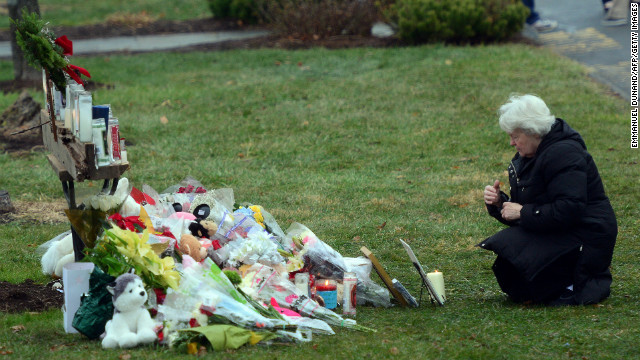
Editor's note: Philip
Alpers is Adjunct Associate Professor at the Sydney School of Public
Health, University of Sydney. A policy analyst in the public health
effects of gun violence and small arms proliferation, his web site
GunPolicy.org compares armed violence and gun laws, country by country.
Sydney, Australia (CNN) -- Could the leader of a
democracy reverse his nation's slide toward the ever more permissive use
of firearms and mandate stringent new gun control laws in less than a
fortnight? Well, yes. One of America's loyal allies did just that -- and
with massive voter support.
In a popular tourist spot
at Port Arthur, Tasmania, in April 1996, a lone gunman killed 20
innocents with his first 29 bullets, all in the space of 90 seconds.
This "pathetic social misfit," to quote the judge in the case, was
empowered to achieve his final toll of 35 people dead and 18 seriously
wounded by firing semi-automatic rifles originally advertised by the gun
trade as "assault weapons." Now we discover that a similar
military-style rifle enabled the Connecticut killer to add his name to
the global list of gun horrors.
In his initial press
briefing on the Connecticut mass shooting, White House Press Secretary
Jay Carney said "today is not the day" to talk about gun control. In
1996, Australians reacted with the opposite mass-majority voice,
insisting: "Now IS the time."
Polls: Your thoughts on gun control
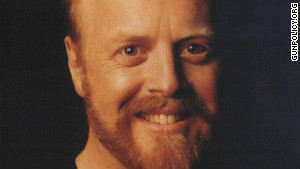
Philip Alpers
Australia's newly-elected
prime minister at the time was John Howard. The country's most
conservative leader in decades, openly proud of his pal status with
George W. Bush, Prime Minister Howard led the then U.S. president to
refer to his nation as America's "sheriff" in South East Asia.
Just like President
Obama, Howard was seen to weep and to offer the nation's prayers in the
wake of another gun massacre. But only 12 days after the shootings, in
Howard's first major act of leadership and by far the most popular in
his first year as prime minister, his government announced nationwide
gun law reform.
Read more: Obama on assault weapons ban
Attitudes to firearms and
the regulations governing them had changed almost overnight. After a
decade of gun massacres which saw 100 people shot dead and 38 wounded,
Australians had overwhelmingly had enough of anyone with a grudge
gaining easy, mostly legal access to weapons designed expressly to kill a
lot of people in a very short time.
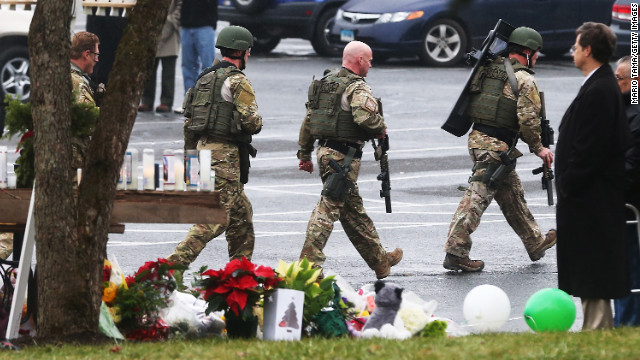 Photos: Connecticut school shooting
Photos: Connecticut school shooting
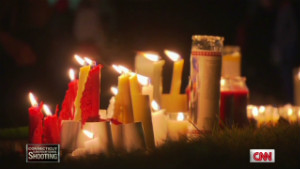 Remembering the victims
Remembering the victims
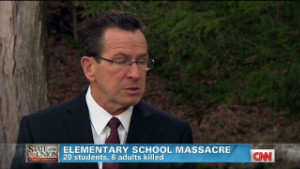 State gov: There are no answers
State gov: There are no answers
New legislation agreed to
by all states and territories specifically addressed mass shootings:
Rapid-fire rifles and shotguns were banned, gun owner licensing was
tightened and remaining firearms were registered to uniform national
standards.
In two nationwide,
federally funded gun buybacks, plus large-scale voluntary surrenders and
state gun amnesties both before and after Port Arthur, Australia
collected and destroyed more than a million firearms, perhaps one-third
of the national stock. No other nation had attempted anything on this
scale.
It wasn't without cost
to John Howard. Self-interest groups among his conservative base raised
hell, and at one rural meeting in a country town, he became the first
Australian prime minister to be photographed wearing a bullet-proof
jacket.
But with statements
like: "We do not want the American disease imported into Australia...
Guns have become a blight on American society," Howard knew he was
speaking for most Australians. Polling at the time measured public
approval of his government's new gun laws at 90 to 95 per cent.
In the years after the
Port Arthur massacre, the risk of dying by gunshot in Australia fell by
more than 50% -- and stayed there. In the 16 years since the
announcement of legislation specifically designed to reduce gun
massacres, Australia has seen no mass shootings. Gun deaths which
attract smaller headlines are 80 times more common, yet the national
rate of gun homicide remains 30 times lower than that of the United
States.
Analysis: Why gun controls are off the agenda in America
To claim cause and
effect would be to stretch all this too far. Mass shootings are such
rare events as to defy prediction, gun death rates were already falling,
and John Howard's gun laws no more prevent every shooting than our
traffic laws eliminate the road toll. The best we can say is that the
results are encouraging, and suggest a way forward.
Beliefs and fears aside,
death and injury by gunshot could be as amenable to public health
intervention as road toll, drunken driving, tobacco-related disease and
the spread of HIV/AIDS.
The obstructions to gun
control are nothing new to public health. An industry and its
self-interest groups focused on denial, the propagation of fear, and
quasi-religious objections -- we've seen it all before. Barack Obama, at
the center of a maelstrom of clashing convictions few foreigners can
comprehend, deserves our sympathy.
But the future is there
to see. With gun violence, as with HIV/AIDS, waste-of-time notions like
evil, sin, blame and retribution could in time be sluiced away to allow
proven public health procedures.
Given the opportunity
and the effort, gun injury prevention might save lives as effectively as
restricting access to explosives, and mandating child-safe lids on
poison bottles.
Opinion: Put reason back in America's gun debate
The opinions expressed in this commentary are solely those of Philip Alpers.
 9:14 PM
9:14 PM
 specialshowtoday
specialshowtoday

 Posted in:
Posted in: 

0 comments:
Post a Comment